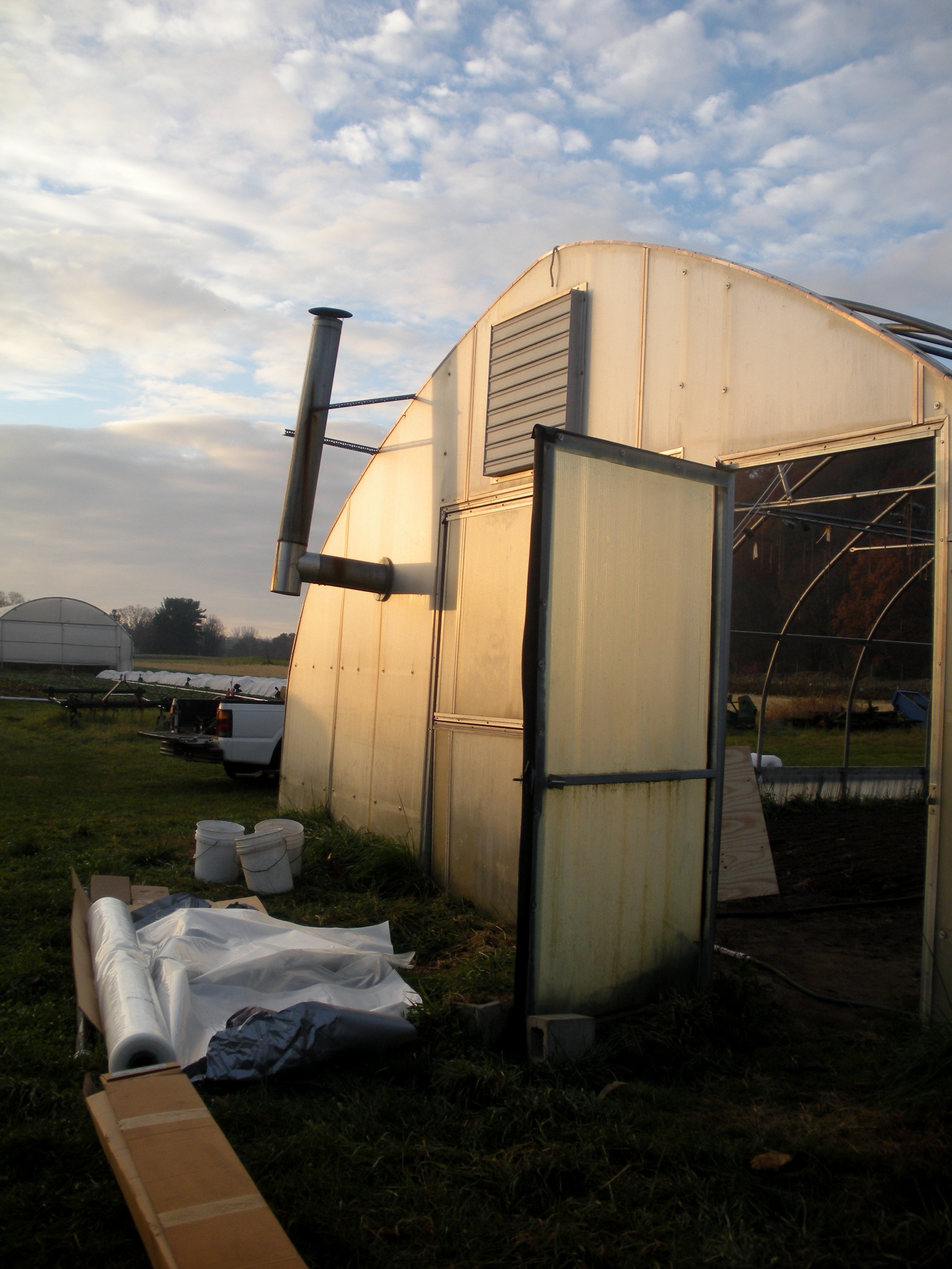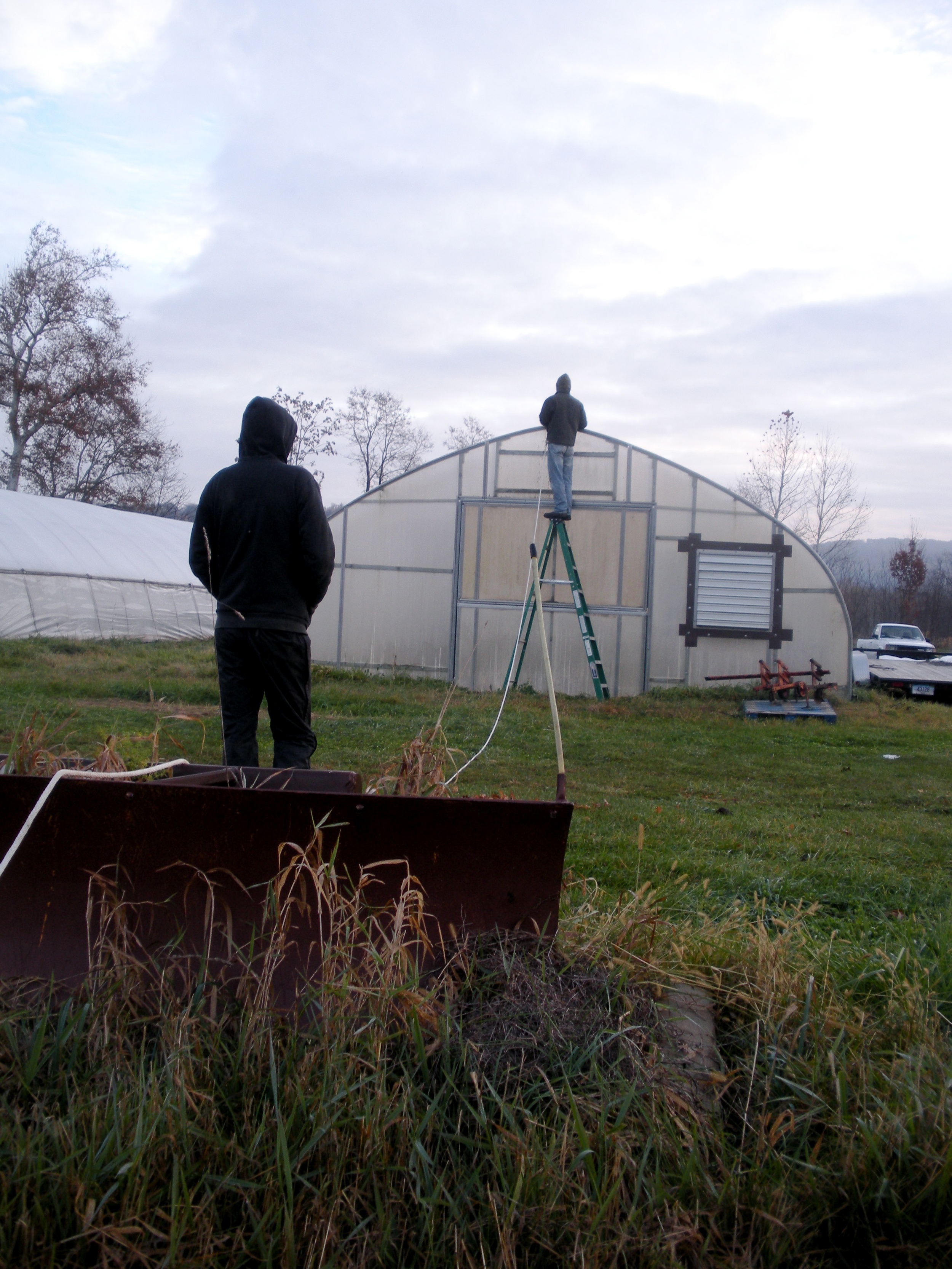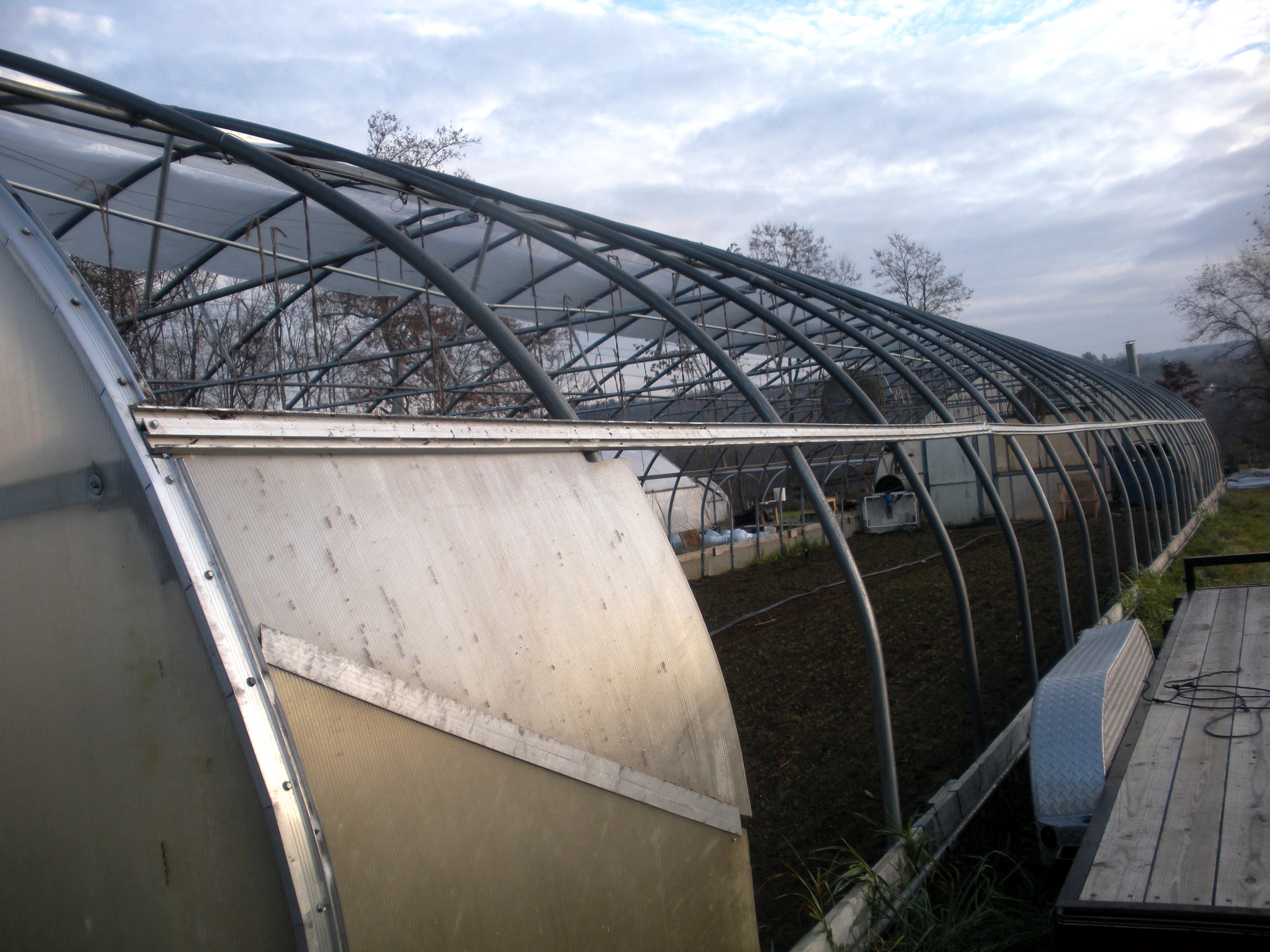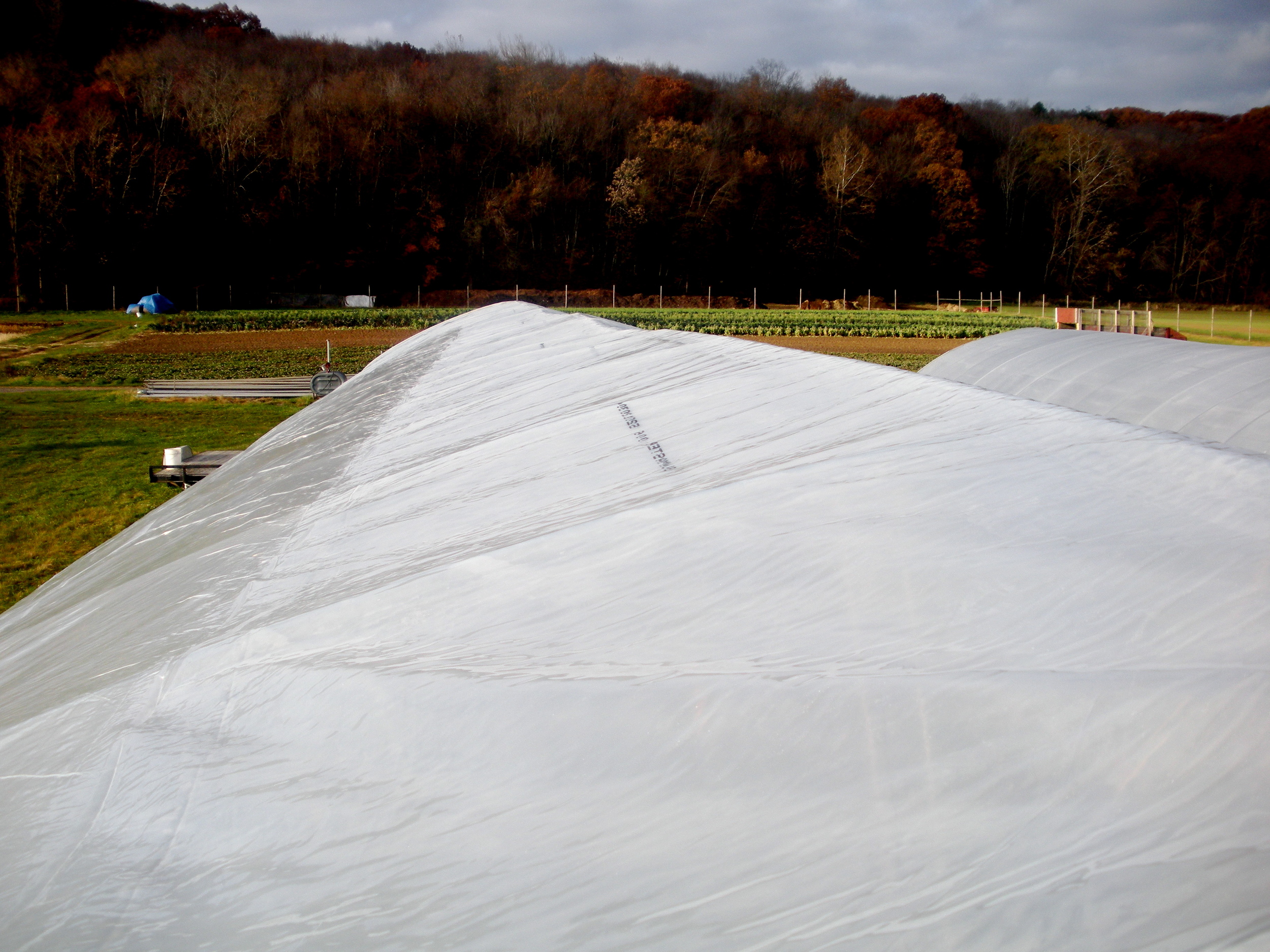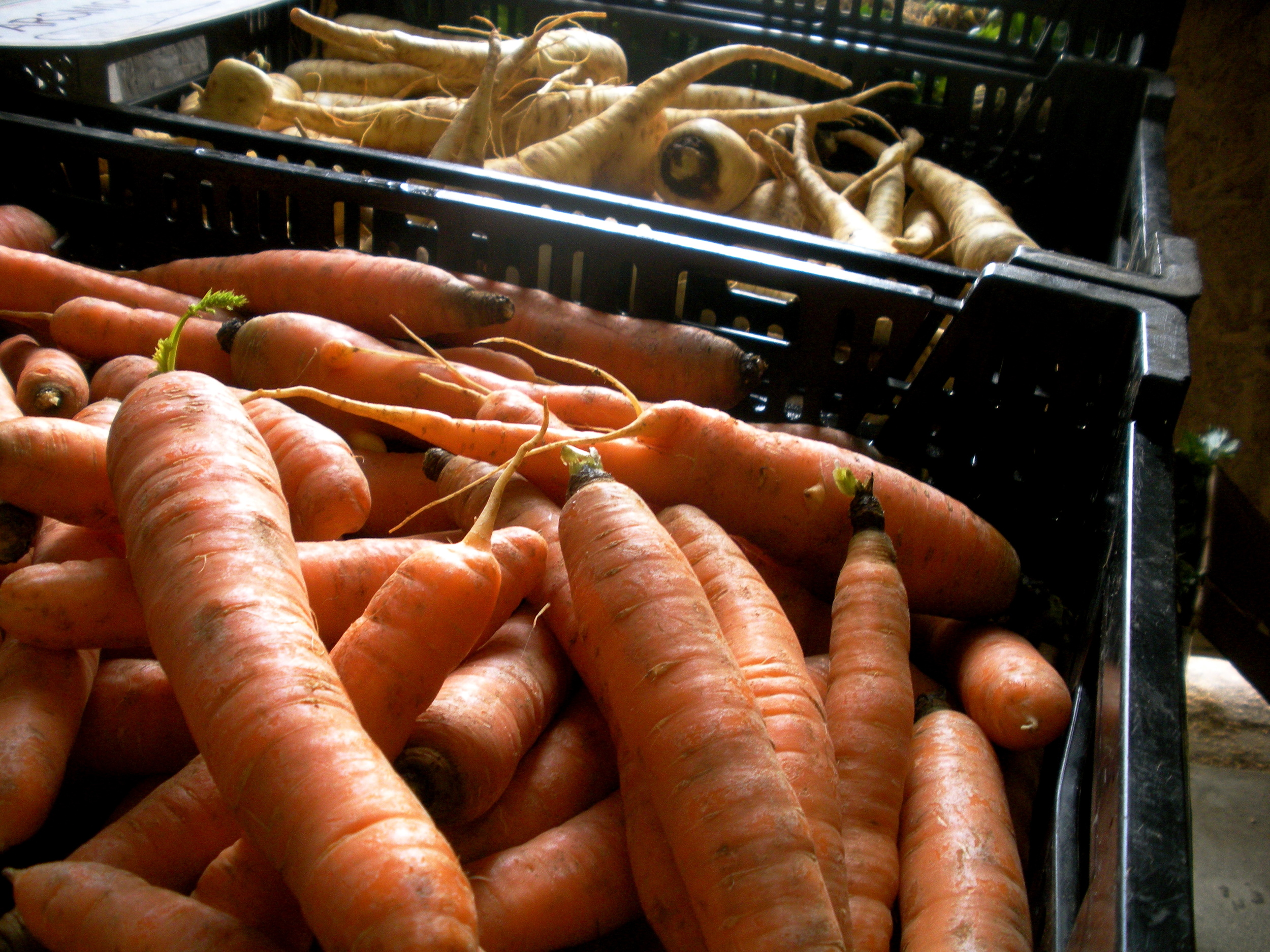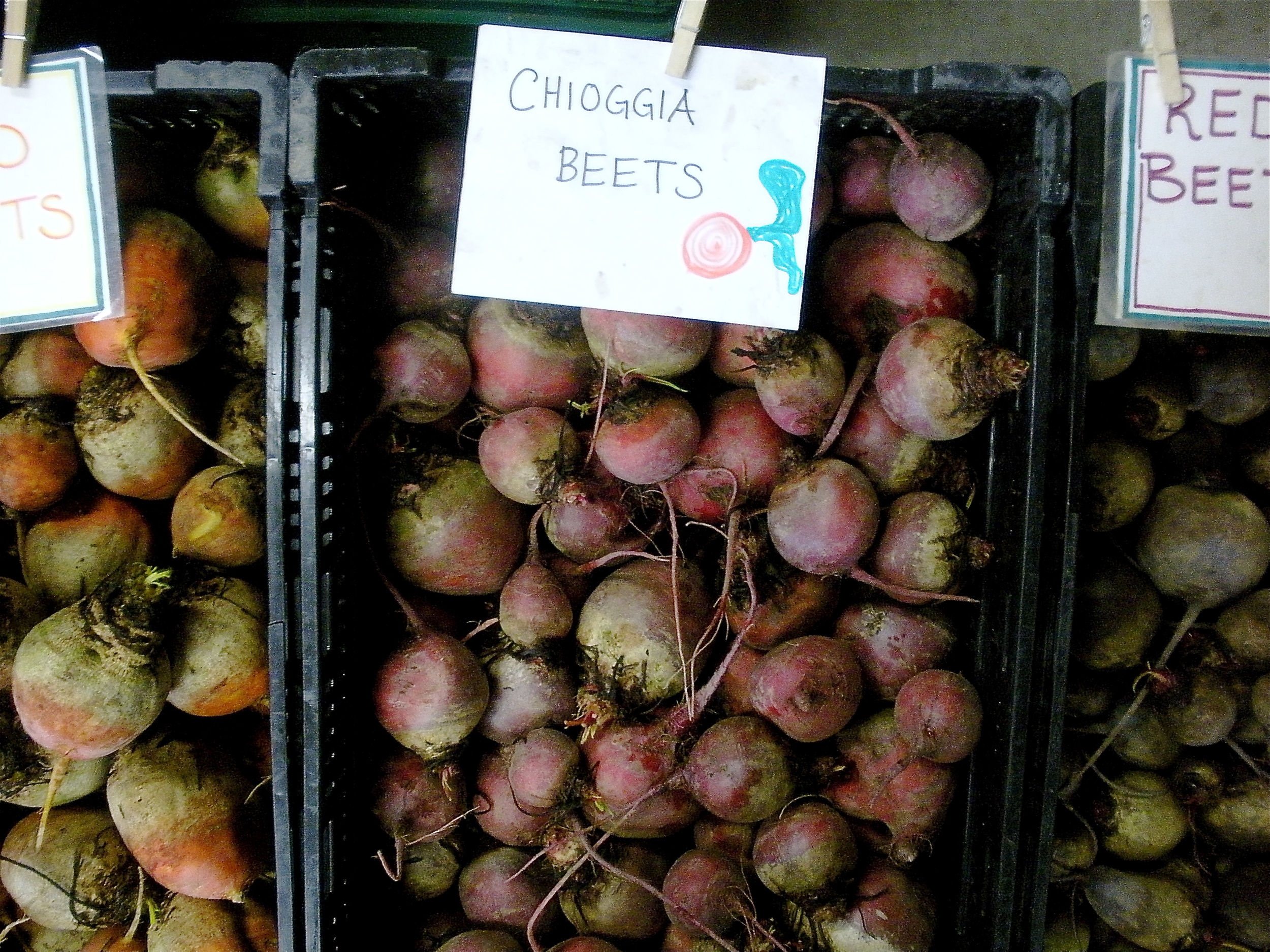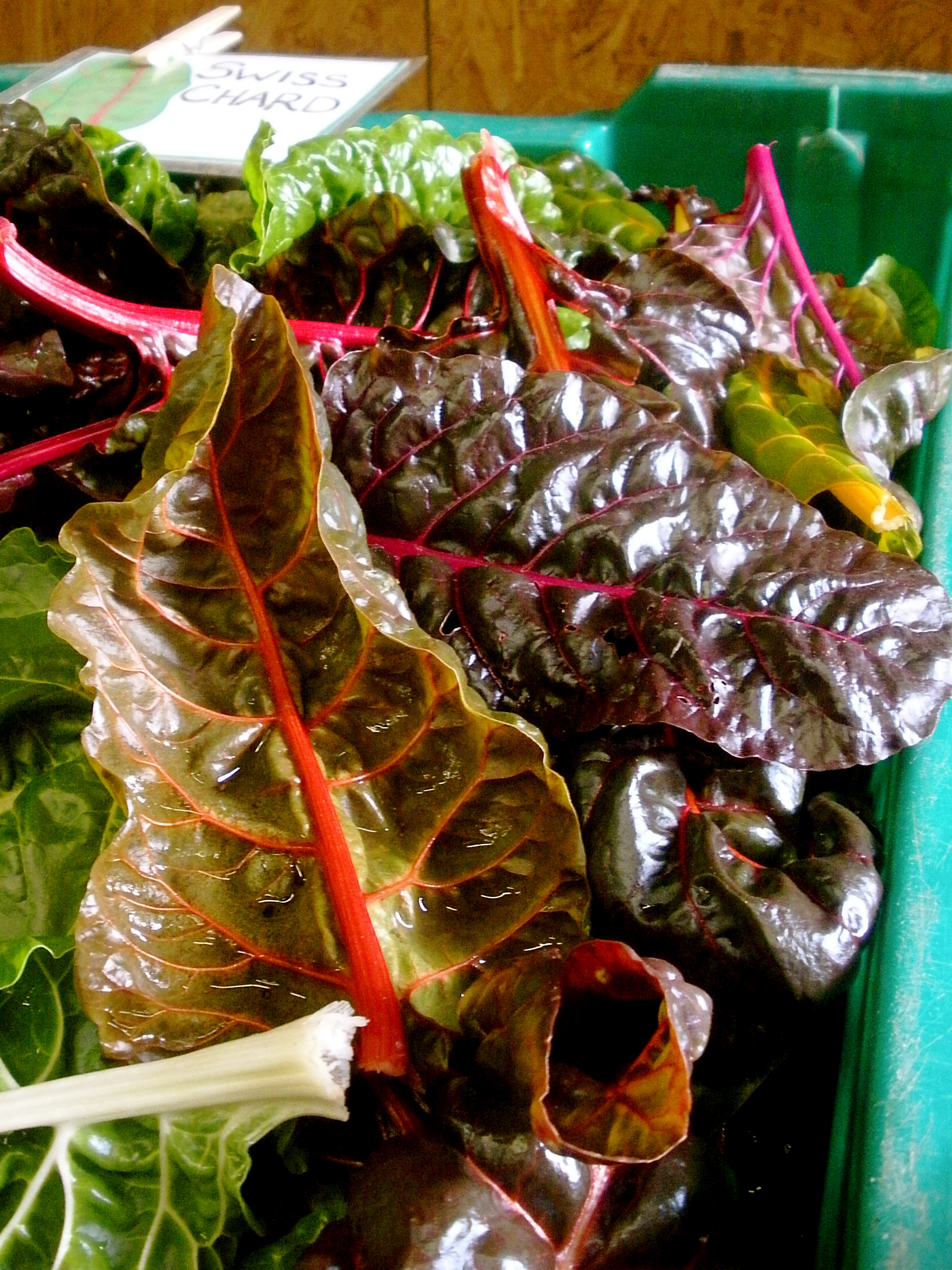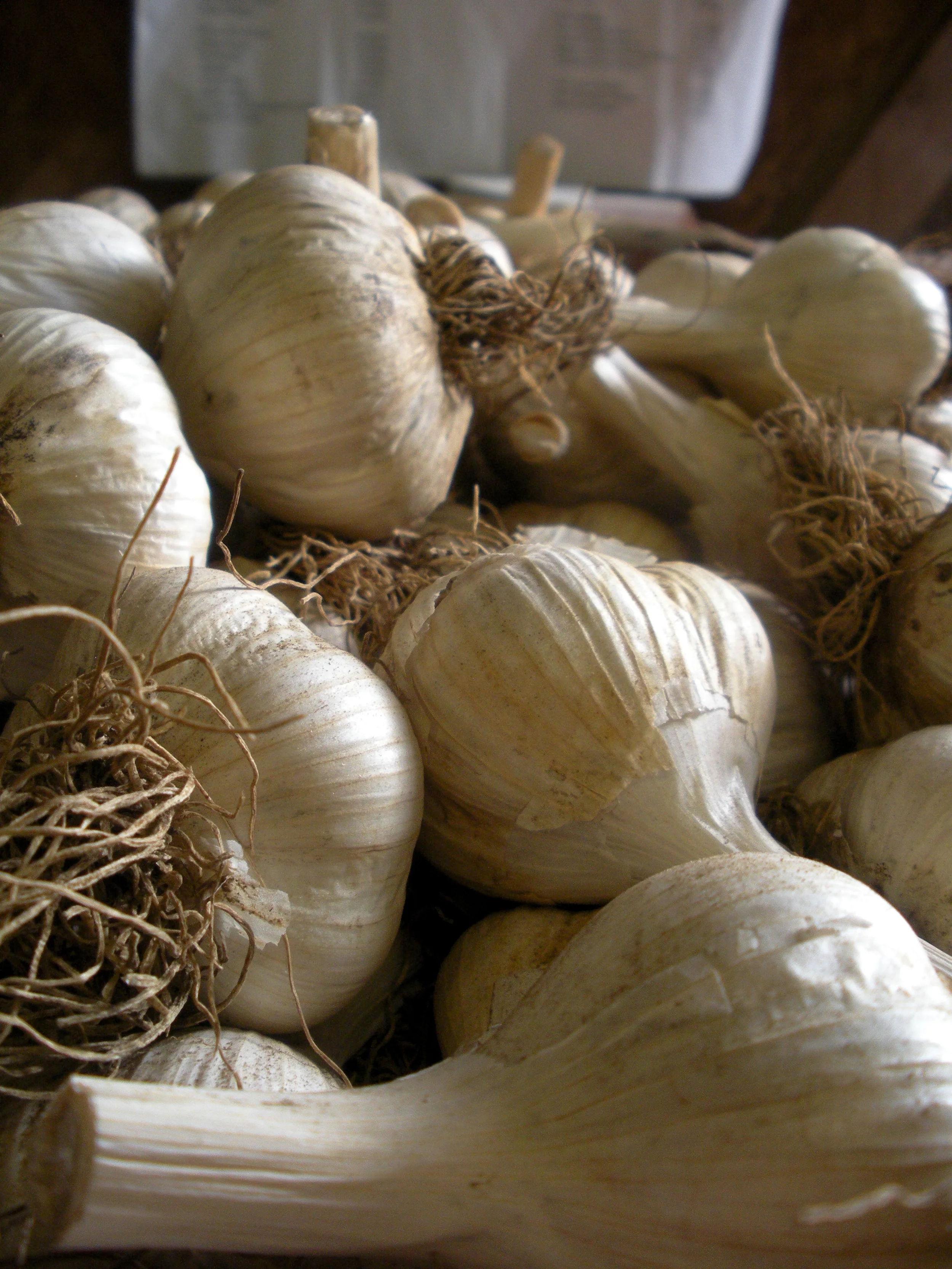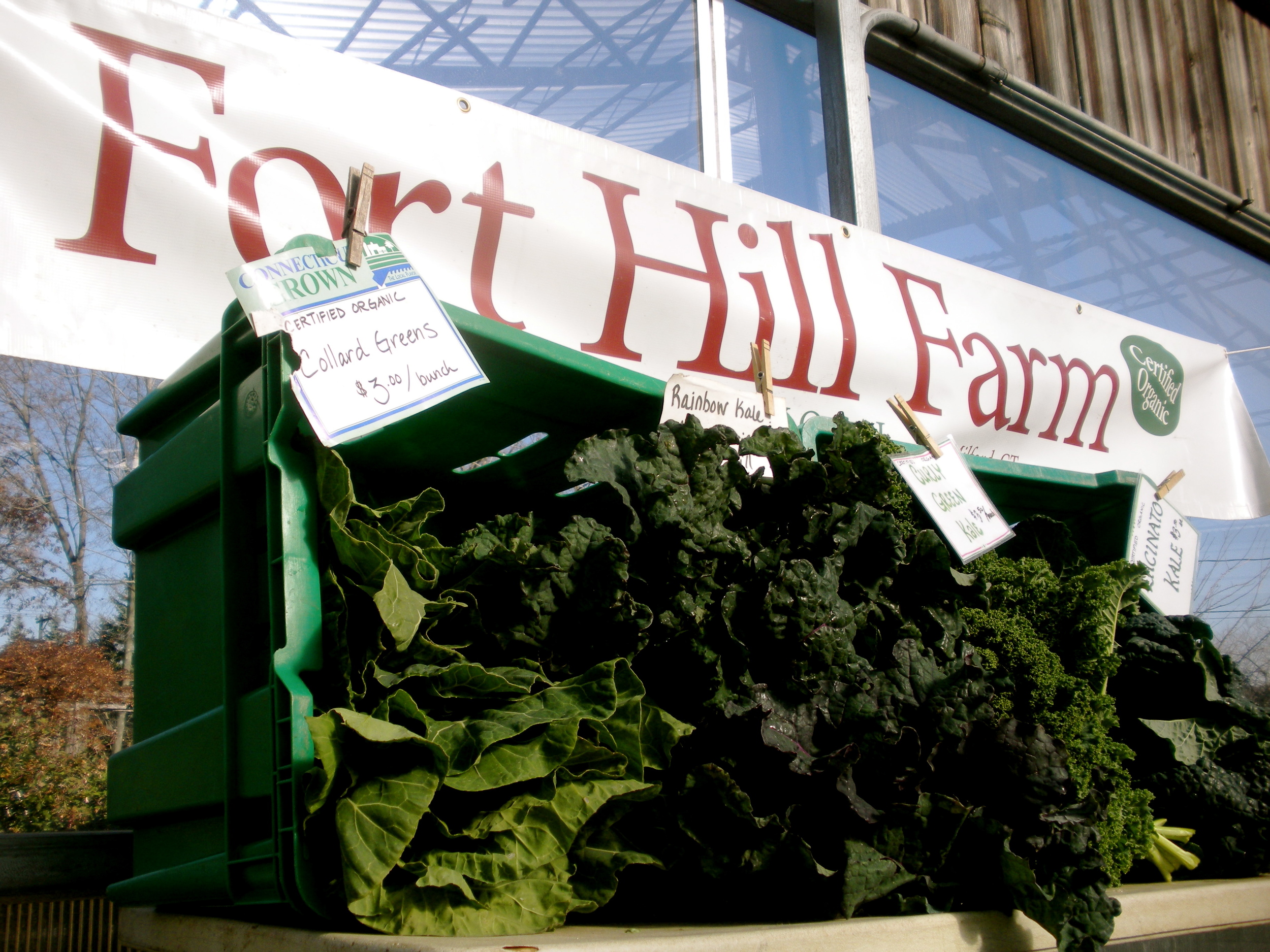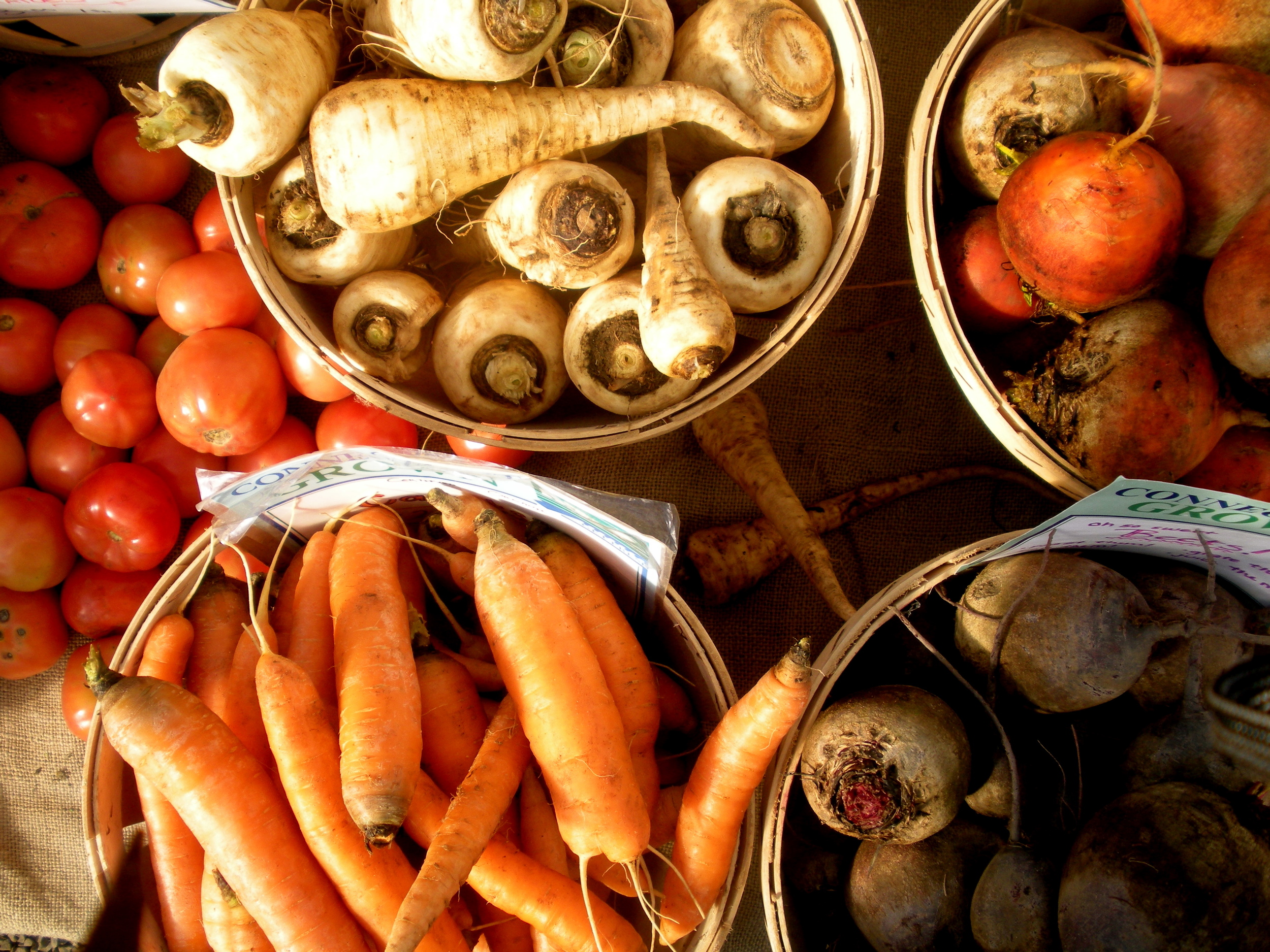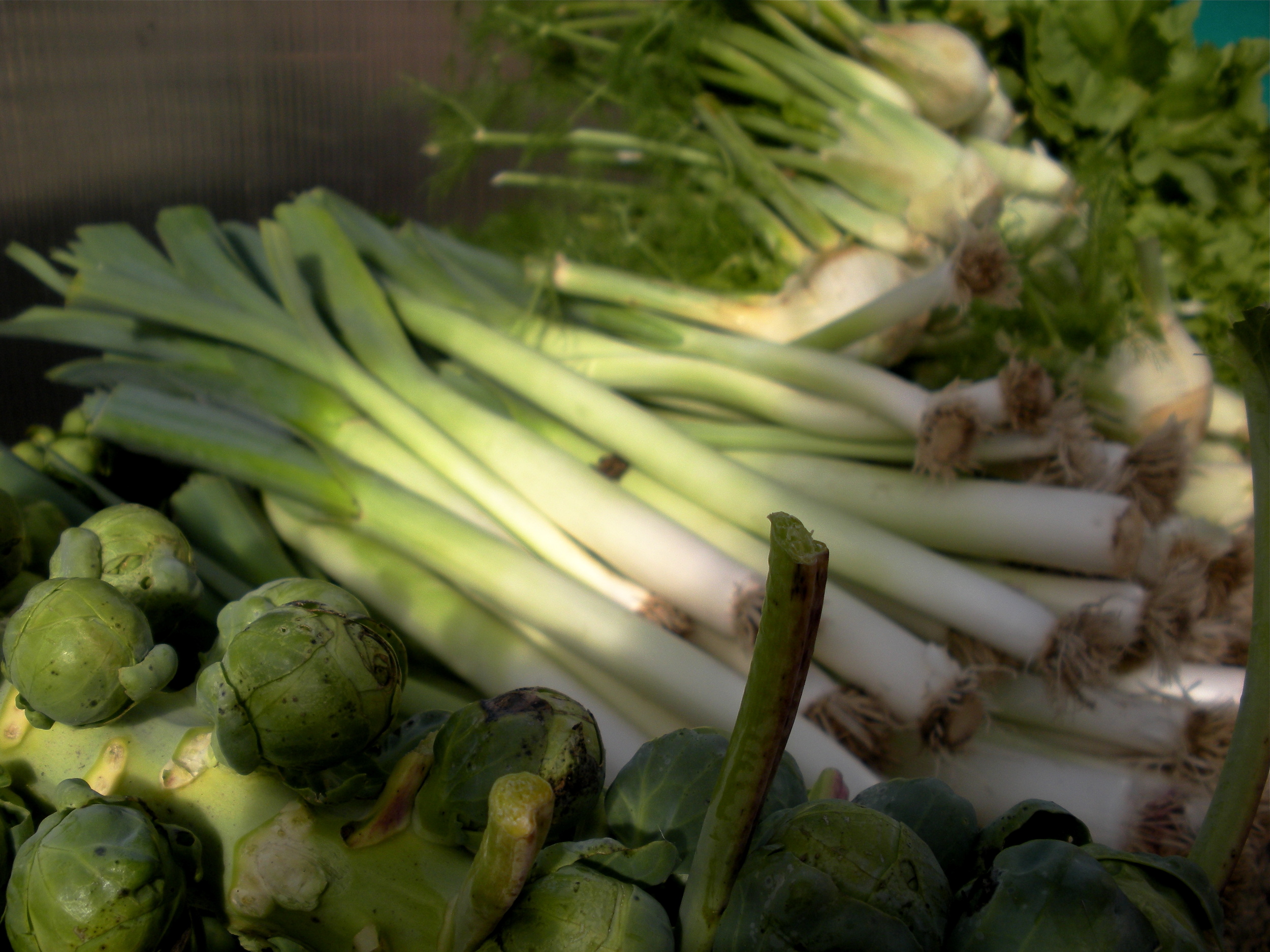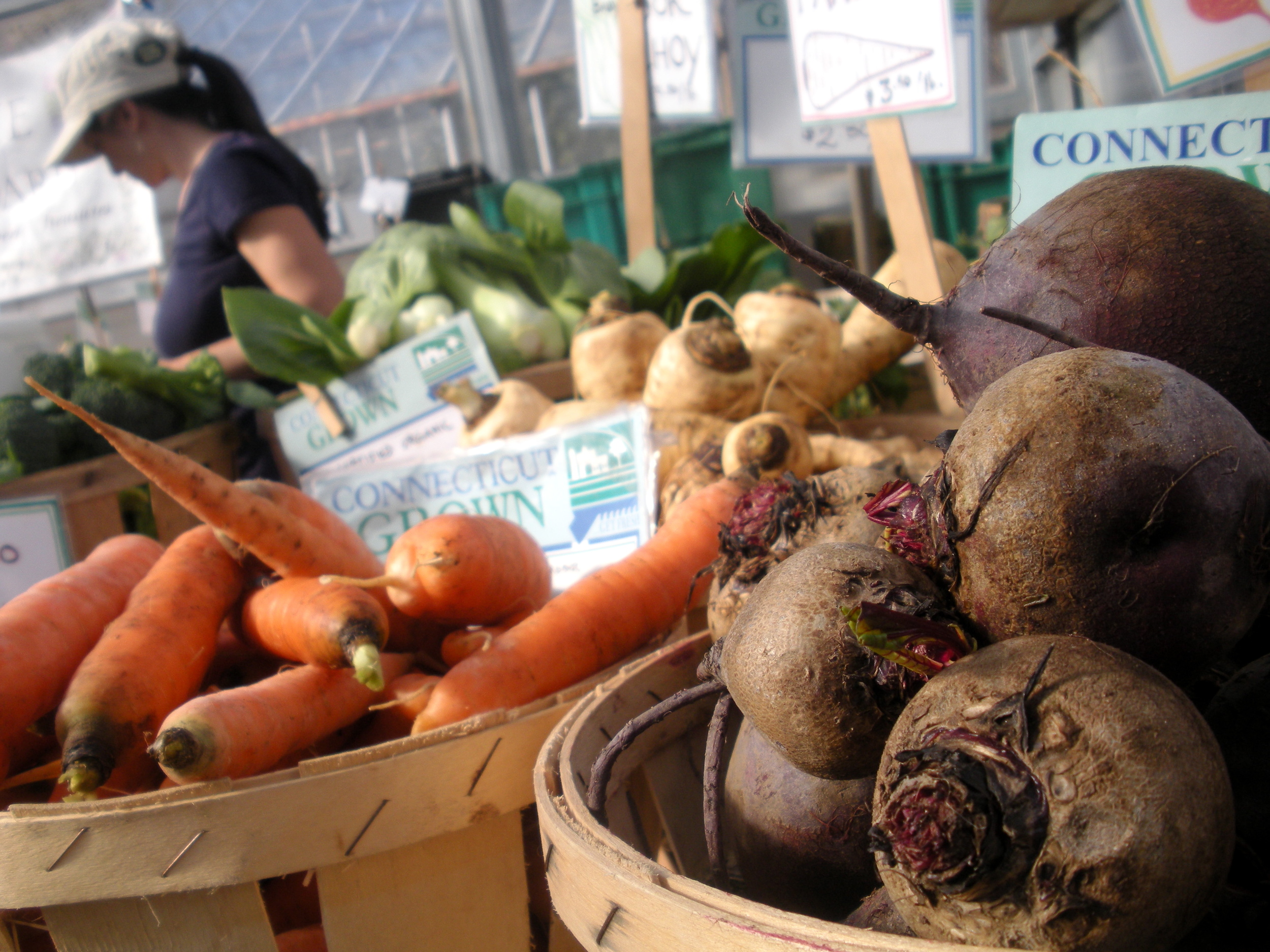“Instructions for living a life: Pay attention. Be astonished. Tell about it.”
I've lived in New England my whole life and I've always had a fondness for winter. It's taught me patience and to be a bit more reflective and introspective. As a food grower, the winter also forces me to appreciate the spring and upcoming growing season much more. But, last week, the snow broke me. I was over the cold, the ice, the uncomfortable, multi-layers of clothing. I threw a shovel like a javelin and may have used a few choice words. I officially joined the other obnoxious, melodramatic East Coasters who talk about the weather as if the apocalypse was approaching.
Welcome back, spinach. I've missed you. (A.Gross, Feburary 2014)
Fortunately, my winter-related freak-out seems to be short-lived because I saw some greenery. I harvested sweet spinach in a warm, unheated greenhouse for the first time in weeks. My body craved the greens; the act of harvesting, eating and interacting with the spinach immediately lifted my spirits. I also sowed the first seeds and handled the first seedings of the 2014 season. It feels a bit odd to be planting seeds in early February, especially with 10" of snow just beyond the greenhouse walls. But, the infusion of vitamin D and new life was the perfect recipe to break the mid-winter melancholy.
As I was transplanting rosemary seedlings, I thought of Mary Oliver's passage (that I posted above) because it was a task that made me incredibly mindful of my existence and surroundings. Not to get all hippie-dippy, but I was aware that all this green life growing in the middle of a white and grey winter was either now providing or would eventually provide us with sustenance in the coming months.
Rosemary seedlings find a new home into bigger cells. (A.Gross, Feburary 2014)
This interaction with the seedlings was also bittersweet. This is my last winter and farming season working for a commercial farm (until, hopefully, I have my own operation!). Fortunately, I'll still be working with seeds and food in my upcoming job, but on a very different scale and different purpose. (More details soon!) Embracing the act of food cultivation and reflecting on the knowledge that I've acquired is overwhelming. I'm so thankful for my farming mentors, the places that are the farms and the life cycles of the diverse ecosystems. But, I'm also incredibly excited to use these skills to help others have access to good, healthful food.
It's easy to be frustrated, stressed or angry, but I think it's just as easy - and far more rewarding and fulfilling - to be happy. Clinical depression certainly exists and I'm not naive enough to think that working with plants is the only cure for mental health issues. BUT for those of us with a tinge of the winter blues, in a trying circumstance, or in need of clarity, seek out signs of life and green. It helps.
Chive seeds, ready to be planted into drill trays...and dirty farmer hands. (A.Gross, Feburary 2014)





